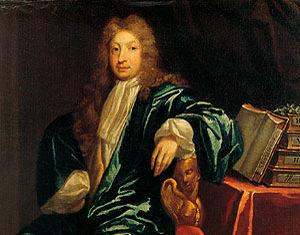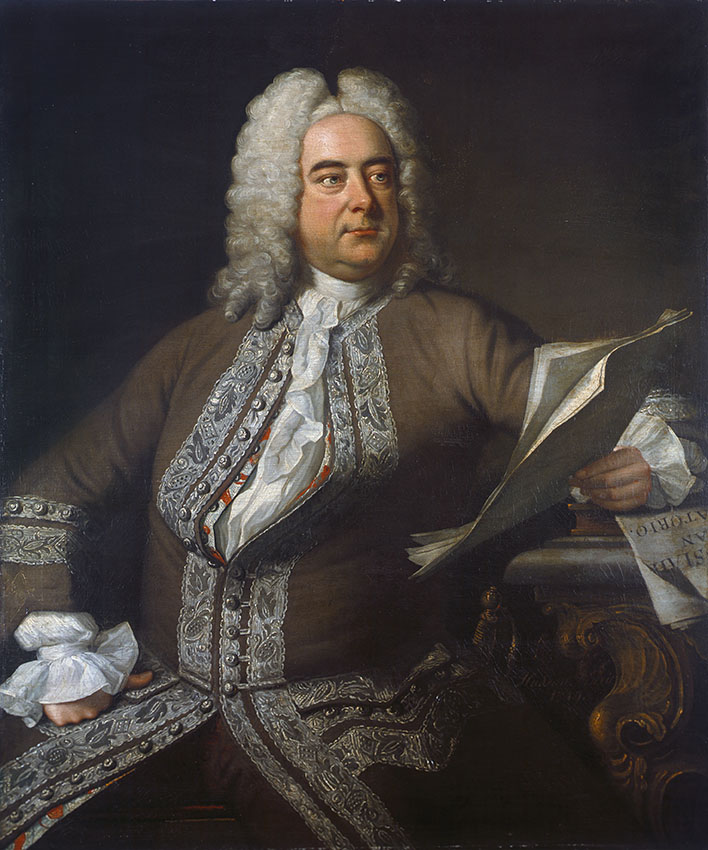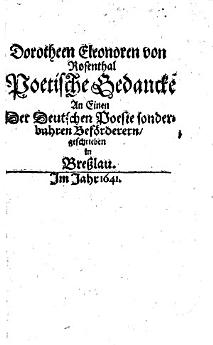
Gemälde: St. Cecilia, 1850. Maler John Tenniel (1820 – 1914)
A Song for St. Cecilia's Day, 1687 From Harmonie Tenor: From harmony, from heavenly harmony This universal frame began. When nature, underneath a heap Of jarring atoms lay, And could not heave her head. The tuneful Voice, was heard from high, Arise! Arise! Arise ye more than dead! Then cold, and hot, and moist, and dry, In order to their stations leap! And music's power obey! And music's power obey! From Harmony Chorus From harmony, from heavenly harmony, This universal frame began. Through all the compass of the notes it ran, The diapason closing full in man. What Passion Cannot Music Raise and Quell Sopran: What passion cannot music raise, and quell? When Jubal struck the chorded shell, His listening brethren stood 'round. And wondering on their faces fell, To worship that celestial sound! Less than a god they thought there could not dwell Within the hollow of that shell That spoke so sweetly and so well. What passion cannot Music raise and quell? The Trumpet's Lound Clangour Tenor: The trumpet's loud clangour excites us to arms, With shrill notes of anger and mortal alarms, The double-double-double beat, Of the thund'ring drum, Cries hark! Hark! Cries hark the foes come! Charge! Charge! Charge! Charge! 'Tis too late, 'tis too late to retreat! Charge 'tis too late, too late to retreat! The Soft Complaning Flute Sopran: The soft complaining flute In dying notes discovers The woes of hopeless lovers, Whose dirge is whispered by the warbling lute. Charp Violins Proclaim Tenor: Sharp violins proclaim, Their jealous pangs, And desperation! Fury, frantic indignation! Depth of pains, and height of passion, For the fair disdainful dame! But Oh! What art can teach Sopran: But oh! what art can teach, What human voice can reach The sacred organ's praise? Notes inspiring holy love, Notes that wing their heavenly ways To join the choirs above. Orpheus could lead the savage race Sopran: Orpheus could lead the savage race, And trees uprooted left their place Sequacious of the lyre: But bright Cecilia raised the wonder higher: When to her Organ vocal breath was given An Angel heard, and straight appeared – Mistaking Earth for Heaven. As from the power of sacred lays Sopran: As from the power of sacred lays The spheres began to move, And sung the great Creator's praise To all the blest above; So when the last and dreadful hour This crumbling pageant shall devour, The trumpet shall be heard on high. As from the pow'r of sacred lays Grosser Chorus As from the pow'r of sacred lays The spheres began to move, and sung the great Creator's praise to all the bless'd above; So when the last and dreadful hour This crumbling pageant shall devoru, The trumpet shal be heard on high, The dead shall live, the living die, And music shall untune the sky.
Text: John Dryden (1631 – 1700), englischer Dichter, Schriftsteller, Literaturkritiker, Dramatiker, Librettist, Übersetzer
Vertonung: Friedrich Händel (1685 – 1759), deutscher Komponist
„Ein Lied für St. Cecilia’s Tag“ von John Dryden, 1687.
Er hat es für das jährliche Festival des Tages der Heiligen Cecilia geschrieben. Es wurde von 1683 – 1703 jeden 22. November in London gefeiert.

John Dryden (1631 – 1700)

Friedrich Händel (1685 – 1759)
Friedrich Händel vertonte die „Ode for St. Ceciliea’s Day“ von John Dryden, der John Dryden 1687 schrieb.



